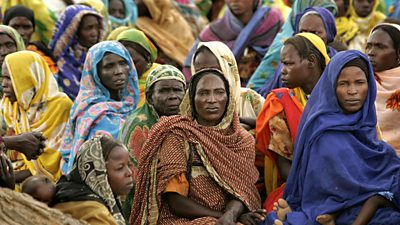Downloads
Published in: July 2012
Summary
- ����ý Media Action was commissioned by the Dutch Ministry of Foreign Affairs to conduct training of journalists and senior staff at radio stations in South Sudan. Following the training, audiences felt there had been improvements in the quality delivered by radio programmes, although these varied by station.
- Post-training, most journalists understood the importance of adhering to best practice but stations differed in their ability to ensure responsible reporting. The majority of stations were better at reporting impartially than accurately.
- Audiences felt that the stations were good at providing balanced and inclusive reporting on political, ethnic and social issues, but wanted less urban-centric reporting and more coverage of local communities.
- Many journalists felt their ability to effectively manage political discussion programmes had improved after training. All stations fared badly on their perceived effectiveness at investigating stories. Further investment in this area could be of benefit to the industry.
The project
The project aimed to strengthen the capacity of national and local media to report effectively on the 2010 elections and the 2011 referendum that led to South Sudan’s independence. A media sector analysis, conducted by ����ý Media Action in 2008/2009, had shown media at the state, commercial and community level in South Sudan to be hampered by a shortage of human capacity and resources. By increasing professionalism at select stations across nine states, this project aimed to increase the capacity of the South Sudanese media to play a role in:
- accurately and impartially informing citizens about political processes and issues
- providing a safe, responsible platform for all voices to be fairly represented within the public domain
- fostering practices of government accountability
Between May 2010 and September 2011, professional and technical training was delivered to journalists and senior editorial/management staff at 10 local radio stations across South Sudan, including state and independently run organisations.
Methodology
Research was conducted with the trainee radio station staff and audience members to evaluate the impact of the training on the quality of programming, responsible and inclusive reporting, and improvement of the media’s role in promoting political accountability. 40 focus groups were held with audience members at all trainee radio stations before the training and 20 focus groups were held after the training (the remaining 20 could not be accessed due to security concerns). The content of two radio programmes per station was analysed after the training and structured interviews were undertaken with five station managers and 20 journalists at the same five radio stations.
Findings
- Delivering quality programming
Listeners felt that all stations had improved the quality of their programming. However, there was considerable variation across stations as to journalists’ skills, stations’ abilities to meet the needs of their audiences, and how well best practice in management and editorial programming was followed.
- Responsible reporting
After training there was variation in trainee stations’ ability to ensure responsible reporting, with the stations being generally better at adhering to impartiality than to accuracy in reporting. Some stations were found to adhere to best practice better than others.
- Inclusive reporting
After training, the diversity of viewpoints about political, ethnic and social issues on air increased. Some focus group participants felt that the media was still too urban-centric, and asked for more reporting from local communities.
- Promoting accountability
Many journalists felt that their journalistic practices and their ability to effectively manage political discussion programmes had improved due to the training. However, interviewees at all stations felt that there had not been an improvement in the effectiveness of journalists to investigate stories, indicating that investigative journalism is an area that could benefit from further investment.
Implications
The findings of this research indicate the importance of journalism training to radio stations. To ensure maximum impact, analysis showed that future interventions could benefit from promoting an enabling media environment as well as building the capacity of media practitioners and stations.
